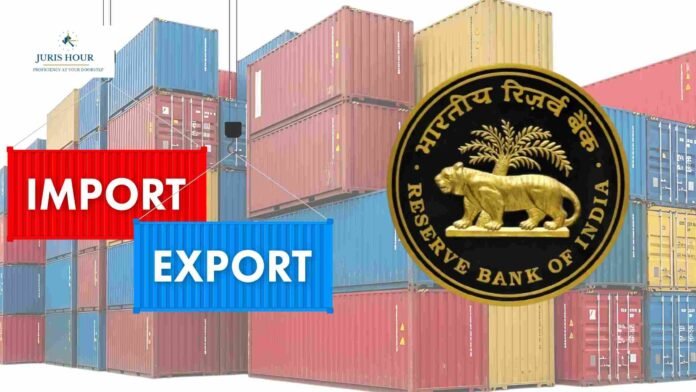The Reserve Bank of India (RBI) has introduced significant relaxations in the reconciliation and closure process of export and import entries under the Export Data Processing and Monitoring System (EDPMS) and Import Data Processing and Monitoring System (IDPMS). The move is aimed at easing the compliance burden on small exporters and importers and ensuring faster closure of outstanding entries.
In a circular (RBI/2025-26/89, A.P. (DIR Series) Circular No. 12) issued to all Authorised Dealer Category-I (AD Category-I) banks, the central bank stated that entries valued up to ₹10 lakh per bill in EDPMS or IDPMS can now be reconciled and closed on the basis of a self-declaration from the concerned exporter or importer.
Simplified Reconciliation Procedure
Under the new directions, AD banks are required to adopt a simplified process for closing small-value entries:
- Self-declaration-based closure: Exporters can declare that export proceeds have been realized, while importers can confirm that payments have been made.
- Acceptance of value reduction: Any reduction in declared or invoice value of shipping bills or bills of entry will be accepted based on the exporter’s or importer’s declaration.
- Quarterly bulk declarations: Exporters and importers can also submit a consolidated declaration on a quarterly basis, combining several small bills for bulk reconciliation and closure of entries.
Rationalisation of Bank Charges
In addition to easing compliance, RBI has directed AD banks to review the charges levied for handling small-value transactions. Banks must ensure that these charges are reasonable and commensurate with the services provided. Importantly, no penal charges or penalties are to be levied for delays in adhering to regulatory requirements in these cases.
Immediate Implementation and Legal Backing
The circular, effective immediately, mandates that AD banks update their internal systems and inform their customers of the new provisions. The changes will also be incorporated into the Master Direction on Export of Goods & Servicesand the Master Direction on Import of Goods & Services.
The RBI has issued these directions under Sections 10(4) and 11(1) of the Foreign Exchange Management Act (FEMA), 1999, ensuring that they are binding on all authorised dealers while remaining subject to other applicable laws.
Move Aimed at Supporting MSMEs
The revised guidelines are expected to provide much-needed relief to micro, small, and medium-sized exporters and importers who often face procedural delays and high compliance costs while dealing with small-value cross-border transactions.
By simplifying documentation and allowing declaration-based closure, the RBI aims to improve operational efficiency in the foreign exchange monitoring framework and encourage smoother trade settlements.
Background
The EDPMS and IDPMS platforms were introduced by the RBI to digitally track export and import transactions and ensure compliance with FEMA regulations. However, small exporters and importers have long complained of cumbersome procedures and high bank charges for low-value bills.
The latest circular marks a policy shift towards a trust-based, declaration-driven compliance system, aligning with the government’s broader push for ease of doing business and digitally streamlined trade operations.
Notification Details
Notification No. RBI/2025-26/89
Date: 01/10/2025
Read More: No Change in Auto-Population of ITC: GSTN Alerts Against Fake News

